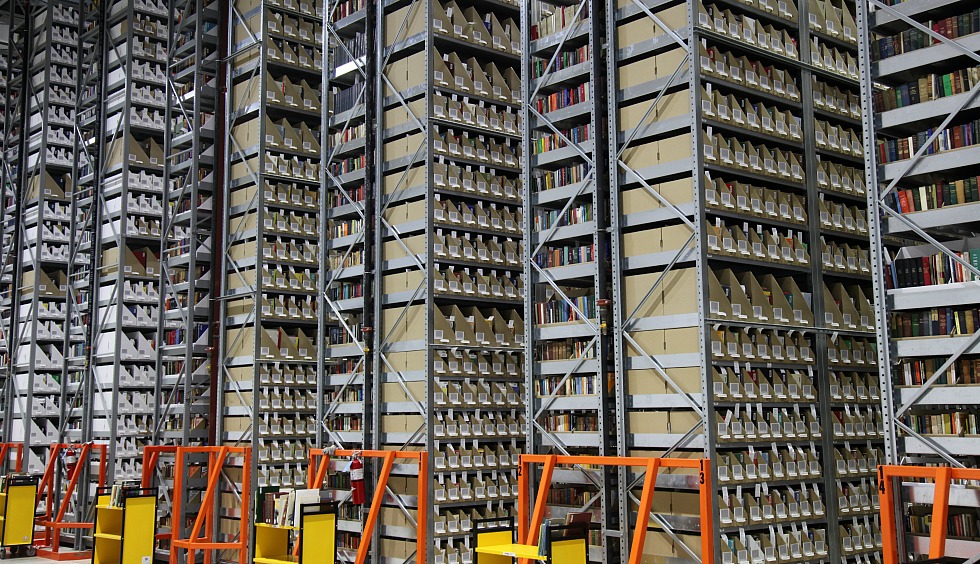Library joins with other research-intensive universities to preserve low-demand books, journals

McMaster University Library has partnered with libraries at four large Ontario research-intensive universities on a shared, newly expanded facility that will preserve and house valuable but seldom-used print materials.
McMaster University Library is collaborating with libraries at four of Ontario’s largest research-intensive universities in a new joint program to ensure that infrequently used scholarly material is preserved and readily accessible to students and researchers for generations to come.
Through the Keep@Downsview partnership, McMaster, the University of Toronto, University of Ottawa, Western University and Queen’s University will share a high-density storage facility designed to provide a secure, environmentally controlled space for the long-term preservation of valuable, but seldom-used print journals and books.
McMaster University Librarian Vivian Lewis says the Library’s participation in the partnership is part of a larger movement in higher education for universities to collaborate and share resources and costs in support of both current and future scholars.
With demands on space increasing while research collections continue to grow, she says moving seldom used items to the facility – located at the University of Toronto’s Downsview campus – will also increase library space for study, research and collaboration.
“We believe it’s essential for these very low-demand but important collections to remain available to McMaster’s academic community well into the future,” says Lewis. “Participating in the Keep@Downsview partnership allows us to work with other research-intensive universities to preserve this material in a secure, cost-effective way, while creating space within the library to foster new types of scholarship, offer new library services, and support both collaborative and individual work.”
Locating and requesting materials will be seamless for McMaster Library users. All titles transferred to Downsview will continue to appear in the Library’s catalogue where they can be requested and quickly returned to campus if needed. Users can also request on-demand scanning of journal articles and book chapters which will be delivered in PDF format.
While McMaster currently has a storage facility for low-use material located in Dundas, Lewis says it is not equipped for long-term preservation and adds that, over time, materials in this facility will be moved to the Downsview facility or returned to the campus libraries, depending upon their usage.
Keep@Downsview was funded, in part, through the Ministry of Training Colleges and the Universities Productivity and Innovation Fund. Some capital and all operating costs will be shared amongst the five universities.
Read an FAQ document to learn more about how Keep@Downsview will work at McMaster
Read an overview of the Keep@Downsview program

